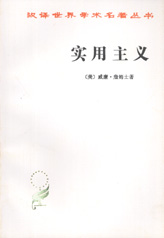牛津实用英语语法-第70章
按键盘上方向键 ← 或 → 可快速上下翻页,按键盘上的 Enter 键可回到本书目录页,按键盘上方向键 ↑ 可回到本页顶部!
————未阅读完?加入书签已便下次继续阅读!
结构。
Although/Though/Even though/Even if you don’t like him you can still be polite.
尽管/即使/纵然/即使你不喜欢他,你仍可有礼貌一些。
No matter what you do,don’t touch this switch.
无论怎样,都别碰这个按钮。
However rich people are,they always seem anxious to make more mon- ey.
无论人们多么富有,他们似乎总还渴望赚到更多的钱。
However carefully you drive,you will probably have an accident eventual- ly.
无论你开车多小心,最后你大概还会出车祸。
Whatever you do,don’t tell him that I told you this.
无论如何,别跟他说这件事是我告诉你的。
Patient as he was,he had no intention of waiting for three hours.
哪怕他再有耐心,也不打算等上三个小时。
may+动词原形可用于假设情况:
However frightened you may be yourself,you must remain outwardly calm.
无论你有多害怕,外表上你仍要保持冷静。
may含有I accept the fact that(我接受这一事实)的意思:
—But he’s your brother!
—He may be my brother but I don’t trust him!
—可他是你的兄弟!
—尽管他是我的兄弟,可我不信任他!
但may这样用时,是另一主句的一部分,并不属于让步从句之列。should+动词原形结构可用于even if之后,正如用于条件句的if之后一样,用来表示should后面的动词原形所指的动作不太可能发生:
Even if he should find out he won’t do anything about it.
即便他发现了,他也不会采取什么行动的。
?
'Amber demo'
341 比较从句
?
A 形容词和限定动词连用时的比较(另参见第20节至第22节):
It’s darker today than it was yesterday.
今天比昨天天色昏暗。
He doesn’t pay as much tax as we do/as us.
他没我们交的税款多。
He spends more than he earns.
他花的比挣的多。
注意:that+形容词是一种口语形式,表示“那么……”:
—Will it cost£100?
—No,it won’t cost as much as(all)that.It won’t be(all)that expen
- sive./It won’t be as expensive as that.
—要花100英镑吗?
—不,花不了那么多。没那么贵。
that+形容词结构有时用于口语中表示very(很)的意思。
B 副词和限定动词连用时的比较(参见第31节至第34节):
He didn’t play as well as we expected/as well as you(did).
他打得不如我们预料的好/你打得好。
He sings more loudly than anyone I’ve ever heard/than anyone else (does).
他唱得比我听到的任何人唱得都响/比任何人都声音响。
You work harder than he does/than him/than I did at your age.
你比他干得卖劲/我在你这个年龄时干得卖劲。
C 形容词和不定式或动名词连用时的比较:
通常两者都可使用,但动词不定式常常用于特定的动作,动名词则用于一般情况(参见下面E):
It’s sometimes as cheap to buy a new one as(it is)(to)repair the old one.
Buying a new one is sometimes as cheap as repairing the old one.
有时买一个新的跟修理旧的一样便宜。
He found that lying on the beach was just as boring as sitting in his office.
He found lying on the beach just as boring as sitting etc.
他发现躺在沙滩上和坐在办公室里一样没趣/烦人。
He thinks it(is)safer to drive himself than(to)let me drive.
He thinks that driving himself is safer than letting me drive.
他认为自己开车要比让我开车更安全些。
It will soon be more difficult to get a visa than it is now.
Getting a visa will soon be more difficult than it is now.
不久之后,签证会比现在更难拿到。
D 上面C所述的这种比较句式中,如as/than前面用的是动词原形,则常在as/than后面用动词原形而不用动名词。与此相同,如as/than前面用的是动名词,则在其后面一般也使用动名词,而不用动词原形,见前面的例子。位于as/than之前的限定动词+this/that/which后面多跟动名词,虽也可跟动词不定式:
I’ll deliver it by hand;this will be cheaper than posting it.
我自己送过去,这样比邮寄要便宜。
He cleaned his shoes,which was better than doing nothing.
他把自己的鞋擦了,这总比无事可做好。
E 动词原形与would rather/sooner连用(参见第297与第298节):
Most people would rather work than starve.
多数人宁可工作也不愿挨饿。
I would resign rather than accept him as a partner.
我宁可辞职也不愿接受他为合伙人。
?
'Amber demo'
342 时间从句
?
A 时间从句由下列表示时间的连词来引导:
after牋牋牋牋牋牋牋牋牋牋?immediately牋牋牋牋牋牋牋?till/until
as牋牋牋牋牋牋牋牋牋牋牋牋?nosooner…than牋牋牋牋?when
as soon as牋牋牋牋牋牋?since牋牋牋牋牋牋牋牋牋牋牋牋 whenever
before牋牋牋牋牋牋牋牋牋?the sooner牋牋牋牋牋牋牋牋?while
hardly…when
时间从句也可由the minute,the moment来引导。
用when,as,while的例句,参见第331节至第333节。
用before的例句,参见第195节B。
B 请留意,时间从句中不用将来时态或条件时态。
1 如将下列将来时态放入时间从句中,须将它变为一般时态。
一般将来时:
You’ll be back soon.I’ll stay till then.
你会很快回来,我一直等到那时。相当于:
I’ll stay till you get back.
我一直等到你回来。
be going to形式:
The parachutist is going to jump.Soon after he jumps his parachute will open.
跳伞运动员要往下跳。他刚跳之后不久,降落伞就会打开。
现在进行时用做一般将来时和将来进行时:
He’s arriving/He’ll be arriving at six.
他将在6点到。
但是:
When he arrives he’ll tell us all about the match.
等他到了,他会好好给我们讲讲那场比赛。
Before he arrives I’ll give the children their tea.
在他来到之前,我会给孩子们吃茶点的。
如进行时态表示某一行动在继续,则其完全可以用在表示时间的从句中:
Peter and John will be playing/are playing/are going to play tennis tonight.While they are playing(during this time)we’ll go to the beach.
今晚彼得和约翰要去打网球。他们打球时,我们将去海滨。
2 在时间从句中,将来完成时变为现在完成时,将来完成进行时变为现在完成进行时:
I’ll have finished in the bathroom in a few minutes.
我一会儿就用完浴室了。
The moment/As soon as I have finished I’ll give you a call.
我一完事儿,就给你打电话。
3 在时间从句中,条件时态变为过去时态:
We knew that he would arrive/would be arriving about six.
我们知道他将在六点钟左右到。
We knew that till he arrived nothing would be done.
我们知道在他到来之前,什么都干不了。
但是,如when引导的是一个名词从句,后面可跟将来时态或条件时态:
He said,‘When will the train get in?’
他说:“火车什么时候进站?”相当于:
He asked when the train would get in.
他问火车什么时候进站。
C since从句(参见第187与第188节)
since从句后面常跟完成时态(另参见第188节):
They’ve moved house twice since they got married./Since they gotmarried,they’ve moved house twice.
他们结婚后已搬了两次家。
He said he’d lived in a tent since his house burnt down.
他说自从他的房屋被烧毁后,他就一直住在帐篷里。
It’s ages since I sailed/have sailed a boat.
我未驾驶帆船已有好多年了。
I haven’t sailed a boat since I left college.
自从我大学毕业后就没再驾驶帆船了。
D after从句
after从句之后常跟完成时态:
After/When he had rung off I remembered…
等他把电话挂断了之后,我才想起……
After/When you’ve finished with it,hang it up.
你用完了之后,请把它挂起来。
E hardly/scarcely… when,no sooner… than(另参见第45节):
The performance had hardly begun when the lights went out.
Hardly had the performance begun when the lights went out.
演出刚开始就停电了。
这里可以用scarcely代替hardly,但不常见。
He had no sooner drunk the coffee than he began to feel drowsy.
No sooner had he drunk the coffee than he began to feel drowsy.
他喝了咖啡没多一会儿,就犯困了。
He no sooner earns any money than he spends it.
Immediately he earns any money he spends it.
他钱一挣到手,就花光了。
注意the sooner…the sooner的用法:
The sooner we start,the sooner we’ll be there.
我们动身得越早,到那儿就越早。
?
'Amber demo'
第三十五章?名词从句
?
名词从句常常由that引导,所以也被称做that从句。然而,名词从句并不全是由that引导的。?
?
'Amber demo'
343 作主语的名词从句
?
A 以名词从句作主语的句子常常由it开头(参见第67节D):
It is disappointing that Tom can’t e.
汤姆不能来,真扫兴。(that Tom can’t e是主语。)
B 常见的结构是it+be/seem+形容词+名词从句(参见第26节与第27节):
It’s splendid that you passed your exam.
你通过考试了,真棒。
It’s strange that there are no lights on.
真奇怪,没有一盏灯是开着的。
有些形容词需要或可以与that…should连用(参见第236节):
It is essential that everybody knows/should know what to do.
重要的是,每个人都应知道该做什么。
C 另一种可代用的结构是it+be/seem+a+名词+名词从句。
下列名词均可用于这种结构:mercy,miracle,nuisance,pity,shame,relief,wonder。也可以使用a good thing。
It’s a great pity(that)they didn’t get married.
他们没能结婚,真是令人惋惜。
It’s a wonder(that)you weren’t killed.
你没死掉真是个奇迹。
It’s a good thing(that)you were insured.
你保了险,这可是件好事。
?
'Amber demo'
344 位于某些形容词/分词之后的that从句
?
结构为主语+be+形容词/过去分词+名词从句:
I am delighted that you passed your exam.
你考试通过了,我很高兴。
这一结构中可以使用
(a)表示感情的形容词:glad,pleased,relieved,sorry。(参见第26节F。)
(b)表示渴望、信心等的形容词/分词:afraid,anxious,aware, certain,confident,conscious,convinced。(参见第27节。)
anxious后面要求使用that…should结构。
I’m afraid that I can’t e till next week.
恐怕我下星期才能来。
Are you certain tht this is the right road?
你肯定这条路对吗?
?
'Amber demo'
345 位于某些名词之后的that从句
?
许多抽象名词之后可以使用that从句。较常用的抽象名词有:allegation,announcement,belief,discovery,fact,fear, guarantee,hope,knowledge,promise,proposal,report,ru- mour,suggestion,suspicion。proposal和suggestion后面要求使用that…should结构。
The announcement that a new airport was to be built nearby





